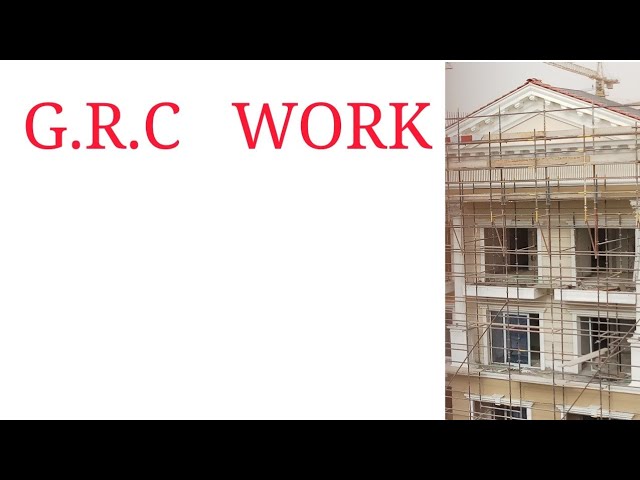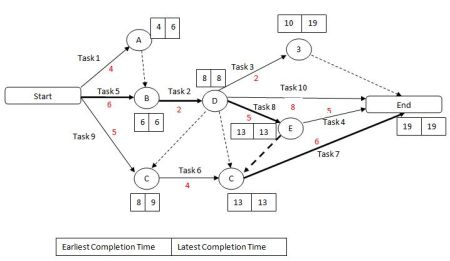
It is an essential part of an organization’s strategy. It can either make or break an organization's performance. The success of a crisis management team depends on their ability to draw from their experiences and improve their practice. The psychological characteristics of crisis managers include task-oriented leadership, preparation, and communication plan. This article will cover these characteristics and how to prepare for a crises. You will be better prepared to deal with a crisis after reading this article.
Psychological characteristics of crisis managers
Critical to their effectiveness, crisis managers must have strong psychological skills. Managers must communicate well, think rationally, and avoid reacting too quickly to crises. A key trait for crisis managers is empathy. Empathy is the ability to see the situation through another person's eyes. Without it, they will be unable to make the most informed decisions. They should be patient and avoid worrying.

Task-oriented leadership behavior
Although task-oriented leadership behavior may have its benefits, there are also dangers associated with this type of leadership. Not only can task-oriented leadership be counterproductive, it can also create a hostile work environment. In this article, we will look at some of the downsides of task-oriented leadership and how it can be detrimental to crisis managers. Here are some examples where task-oriented leadership may not be the best option if you find yourself in a difficult situation.
Preparation for crises
Although crises can occur to any organization, it is possible to avoid them by planning ahead. The best way to manage crisis situations is to assess the weaknesses of your organization and identify potential areas of danger. They also recommend pre-drafting crisis messages and conducting mock drills. The best way to help crisis response teams make the right decisions is to practice before the crisis happens. For more information, see Crisis in Organizations II (Code Red in the Boardroom)
Communication plan
Establishing a list with contact information for all stakeholders is one of the first steps to creating a crisis management communications plan. It is important to prioritize the information so that only the most important customers get contacted. You should also outline procedures for contacting suppliers during a crisis. This will allow you to send messages as and when you need them rather than relying upon a manual process that is slow or inefficient.

Public relations damage control
It is essential to recognize and correct PR errors if you want the situation to not spiral out of control. Even though small businesses may lack the funds to hire a crisis manager, they can follow a specific protocol to deal with public relations issues. A proactive approach to dealing with issues will help avoid crises that can affect your reputation and business. A proactive approach towards crisis management is better and more cost-effective than waiting for the controversy settle down.
FAQ
Why is it so hard to make smart business decisions?
Complex systems are often complex and have many moving parts. They require people to manage multiple priorities and deal with uncertainty and complexity.
To make good decisions, you must understand how these factors affect the entire system.
You must first consider what each piece of the system does and why. Then, you need to think about how these pieces interact with one another.
It is also worth asking yourself if you have any unspoken assumptions about how you have been doing things. You might consider revisiting them if they are not.
If you're still stuck after all this, try asking someone else for help. They might have different perspectives than you, and could offer insight that could help you solve your problem.
Why is it important for companies to use project management techniques?
Project management techniques are used to ensure that projects run smoothly and meet deadlines.
Because most businesses depend heavily on project work to produce goods or services,
These projects are essential for companies.
Without effective project management, companies may lose money, time, and reputation.
How do we build a culture that is successful in our company?
A culture of respect and value within a company is key to a productive culture.
It is founded on three basic principles:
-
Everybody has something of value to share
-
People are treated fairly
-
Respect is shared between individuals and groups
These values are evident in the way that people act. They will treat others with respect and kindness.
They will listen to other people's opinions respectfully.
They will also encourage others to share their ideas and feelings.
In addition, the company culture encourages open communication and collaboration.
People are free to speak out without fear of reprisal.
They are aware that mistakes can be accepted if they are treated honestly.
Finally, the company culture promotes honesty and integrity.
Everyone understands that the truth is always best.
Everyone knows that there are rules and regulations that apply to them.
No one is entitled to any special treatment or favors.
How to effectively manage employees
The key to effective management of employees is ensuring their happiness and productivity.
It means setting clear expectations for them and keeping an eye on their performance.
Managers need to establish clear goals for their team and for themselves.
They need to communicate clearly with staff members. They also need to make sure that they discipline and reward the best performers.
They must also keep records of team activities. These include:
-
What was achieved?
-
What was the work involved?
-
Who did it?
-
How did it get done?
-
Why was it done?
This information is useful for monitoring performance and evaluating the results.
What is the difference of leadership and management?
Leadership is about influencing others. Management is about controlling others.
Leaders inspire followers, while managers direct workers.
A leader motivates people and keeps them on task.
A leader develops people; a manager manages people.
What are the four major functions of Management?
Management is responsible of planning, organizing, leading, and controlling people as well as resources. Management also involves setting goals and developing policies.
Management is the ability to direct, coordinate, control, motivate, supervise, train, and evaluate an organization's efforts towards achieving its goals.
The following are the four core functions of management
Planning - Planning refers to deciding what is needed.
Organizing - Organization involves deciding what should be done.
Direction - This is the art of getting people to follow your instructions.
Controlling - This is the ability to control people and ensure that they do their jobs according to plan.
What are the 5 management processes?
The five stages of any business are planning, execution, monitoring, review, and evaluation.
Setting goals for the future is part of planning. Planning involves defining your goals and how to get there.
Execution occurs when you actually carry out the plans. Everyone involved must follow them.
Monitoring is the process of evaluating your progress toward achieving your objectives. Monitoring should include regular reviews of performance against goals and budgets.
Review events take place at each year's end. They allow for an assessment of whether all went well throughout the year. If not, changes may be made to improve the performance next time around.
After each year's review, evaluation occurs. It helps identify which aspects worked well and which didn't. It also provides feedback regarding how people performed.
Statistics
- UpCounsel accepts only the top 5 percent of lawyers on its site. (upcounsel.com)
- As of 2020, personal bankers or tellers make an average of $32,620 per year, according to the BLS. (wgu.edu)
- The profession is expected to grow 7% by 2028, a bit faster than the national average. (wgu.edu)
- Hire the top business lawyers and save up to 60% on legal fees (upcounsel.com)
- This field is expected to grow about 7% by 2028, a bit faster than the national average for job growth. (wgu.edu)
External Links
How To
How can you use the Kaizen method?
Kaizen means continuous improvement. This Japanese term refers to the Japanese philosophy of continuous improvement that emphasizes incremental improvements and constant improvement. It's where people work together in order to improve their processes constantly.
Kaizen is one method that Lean Manufacturing uses to its greatest advantage. This concept requires employees to identify and solve problems during manufacturing before they become major issues. This way, the quality of products increases, and the cost decreases.
Kaizen is a way to raise awareness about what's happening around you. If something is wrong, it should be corrected immediately so that no problem occurs. Report any problem you see at work to your manager.
Kaizen has a set of basic principles that we all follow. The end product is always our starting point and we work toward the beginning. We can improve the factory by first fixing the machines that make it. Next, we fix the machines which produce components. Then we fix the workers, who directly work with these machines.
This approach is called 'kaizen' because it focuses on improving everything steps by step. Once the factory is fixed, we return to the original site and work our way back until we get there.
It is important to understand how to measure the effectiveness and implementation of kaizen in your company. There are many ways you can determine if kaizen has been implemented well. One of these ways is to check the number of defects found on the finished products. Another way is to see how much productivity has increased since implementing kaizen.
Another way to know whether kaizen is working is to ask yourself why did you decide to implement kaizen. It was because of the law, or simply because you wanted to save some money. It was a way to save money or help you succeed.
If you answered yes to any one of these questions, congratulations! You're ready to start kaizen.